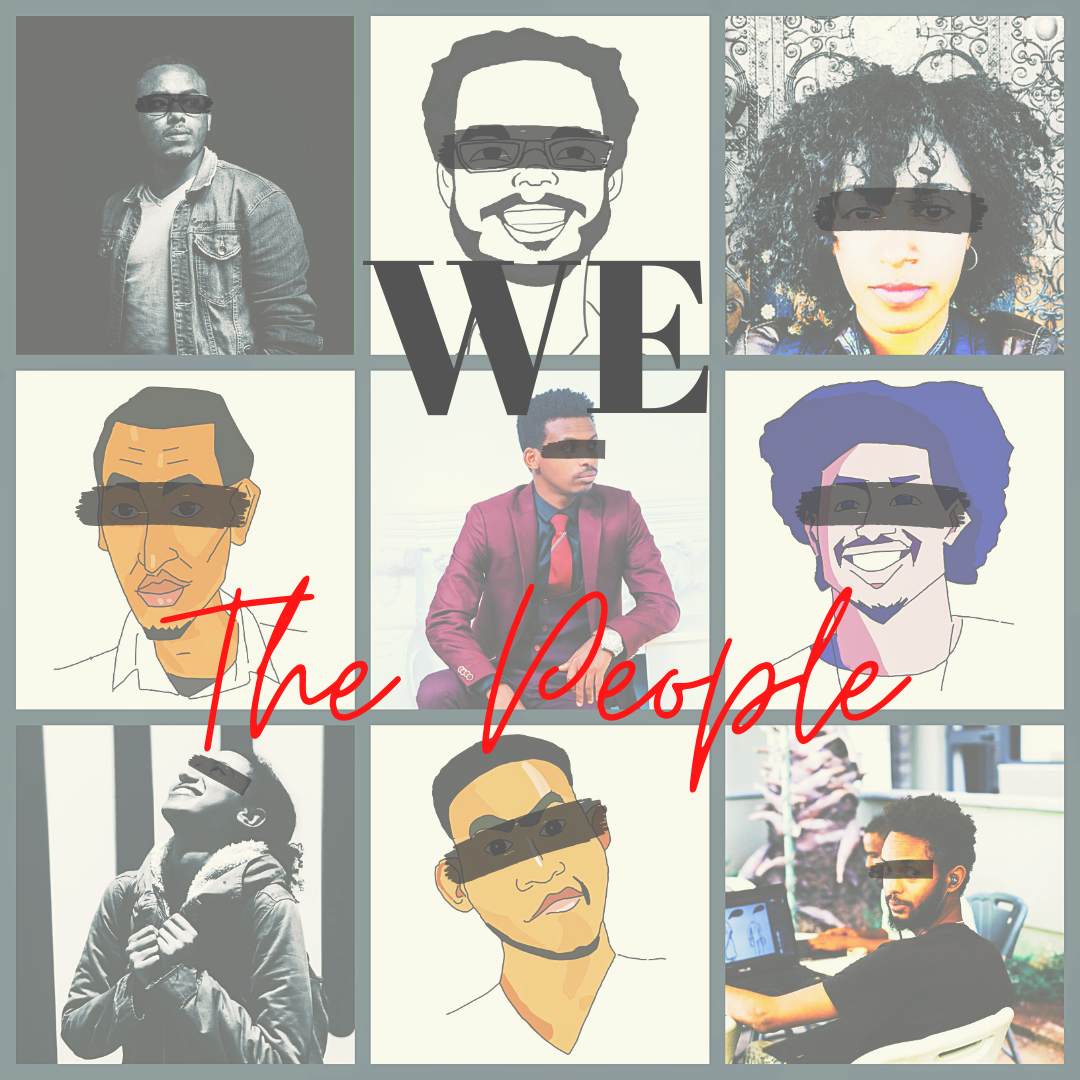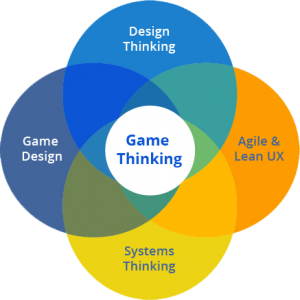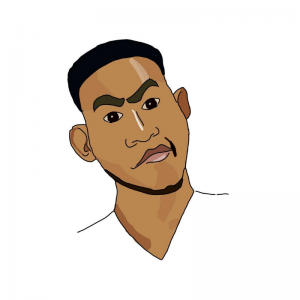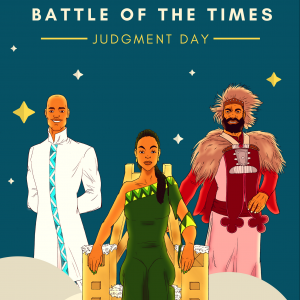‘In Game-Thinking We don’t really care about your problems,
What we really care about is You and Why you are not able to solve your own problem knowing you have them.’
How did you get into game thinking?
Chewata Awaqi was founded four years ago by six Ethiopian aspiring entrepreneurs from all walks of life and their German mentor. After seeing the power of games in social changes via our first cross platform game called “Battle of the Times”, which was also the first ARG and location based game for the country, we decided to form Chewata Awaqi (an Amharic term that roughly translates to a Game Wizard (a wise man with a sense of fun)). This experience opened our eye to the unhappy current stale state of our community and the potential Game Thinking has to transform ourselves and everyone around us. So, we started out by having one overarching vision, which was, “to bring back the fun to the Learning, Loving and Living experience “.
What is your objective?
We’re here to cure the world with game thinking. In a world of extremities we believe games perfect balance art and behavioral science. At the same time games are also the highest forms of expression in that they make the audience be more than a simple spectators/listener. In games the audience is also the artist, the co-creator, they ENGAGE with the art and express themselves in it. That’s why we believe we can create a significant social impact through the use of game thinking. Simply put We Design Experiences, We Design Human Expressions, We Design Aha’s, Oooooow’s, hmmm’s, OMG’s, No Way’s, Mts’s…
Who is your target audience?
This might sound a bit far-fetched but our audience is everyone in our community. Since we’re working with games most people tend to think that our target audiences are small kids and youngsters but honestly speaking the truth couldn’t be further from that. You see, kids and youngsters are the part of the community that are the closets to their true selves. Kids already know the power of games and they’re always playing, evening when you think they’re doing serious things. But on the other hand we’ve witnessed the rise of a passive adult population with a sense of entitlement without contributions. A waiting mindset (looking for solutions outside of the self) has become the norm. And this notion is what we’re out to tackle. That’s why we tend to focus on the adult population; especially those we categorize as the passive part our community
What are the challenges of creating and designing games that are meant to solve problems?
The challenge starts with the name and the perception of our community to the term “game”. Whenever you tell someone you are making games, the first thing that comes to their mind is a pass-time thing, a leisure activity or even in most cases a time-wasting chore. So we usually don’t use the word “games” but rather use terms like “simulation”, “interactive/educational tools”, “playful/immersion design”, “engaging elements”, “gamification”. Once this challenge is passed and you have your client onboard, the next big challenge the clients’ expectations and willingness to change. In game thinking we don’t want to solve problems directly because from experience we’ve learned problem solving is 20% actual challenge and 80% perception of the challenge. A simple example to prove that problem solving is a mind over matter issue is that we’ve often seen different people in similar situations where one makes it and the other doesn’t. If you see a young playing a video game, if he/she comes across a monster in front, what the gamer will almost always do is go fight the monster directly since he/she knows whatever they’re looking for is found past the monster. We call this perception of problems as a “Gamer Mindset”. Most people see problems and see them as obstacles to be avoided bur the truth is problems are opportunities disguised as challenges that are the gateway to a better, evolved self. And this is our greatest challenge. Most client just want a product that will solve their problems we know that’s not enough and requires personal transformation as well and convincing clients to accept this notation is by far our greatest challenge which we enjoy doing.
How do you explain your theory on game thinking?
Game thinking is more of a way of life, a mindset, a philosophy (the most meaningful for whoever dare to contemplate) than a theory per se. If you analyze life, we know there are various schools of thoughts ranging from the realms of science (evolution and survival of the fittest) to the realms of religion and spirituality (purpose, meaning of life, afterlife…). Game thinking aims to look at life as what it is than what it could be. Rather than trying to solve this huge century long question, game thinking resorts to addressing what life is and work from the premises that we all agree upon which the realistic essence of life, that is interaction. Life by definition requires action and guarantees feedback for every action. This statement somehow contradicts René Descartes’ famous saying “Cogito, ergo sum: I think there for I am” and in its place puts the most obvious observation that is “I act there for I am”. Simply put Game thinking is the study of the art and science of play/interaction. So we believe the most obvious purpose of life is simply to live, to let one act, interact, engage and immerse oneself in. Thus the biggest challenge we’re here to address is immobility, passivity, and a bystander mindset which seems to have swept over the world and our people as we know it.
We think one of the greatest challenges of the 21st century is the two rising polarities of understanding life. The two polarities being absolute seriousness and total foolishness especially on the digital space. Just to give an example when exploring the internet the two most popular contents are either a political post or a gossip.
One thing we always make clear before we start doing anything is that our job is not to solve our clients problems (there are plenty of so called “solutions providers” our there that can do that, and in the past we’ve been those solution providers and we’ve seen that the solution provider way is not the most efficient way). The problem with the solution provider mindset is that it from the get go, it immobilizes the client as the desperate helpless actor of the interaction. So yes, we make it pretty much clear that we don’t care about our clients problems, or more like there is a much bigger more foundational element we care other than their problems. This element is our client themselves, their mindset. So we tell our clients boldly that
“We don’t care about your problems, what we care about is you and how come you were not able to solve your own problems knowing you have them in the first place.” Now this is a more critical and interesting question. We question the relationship between our client and their problem and what they’ve been doing till now. Once we make this clear then we give our offering which is a journey with the client to assist them in solving their own problem. And our assistance ranges from the simple action of listening while the client thinks out loud, to asking questions, to crystalizing and simulating clients potential solutions to the problems to finally producing and delivering that solution that was thought out in minds of the client.
What is the Chewata Awaq’s creative project on ‘Tibeb be Adebabay’?
This is an interesting question because we were one of the founders of Tibeb Be Adebabay. We were there three years ago when it all started. For the first year we introduced a serious of social experiments to measure our society playfulness. Throughout the three years we had a “free hug” experiment to see how well people responded to a free hug request from strangers (the irony being now in 2020 hugs are the most expensive things to offer). We had a “masked abs experiment” where we gave people public disguises and dared them do things they’re scared of. On our 2nd years performance session we’ve had platforms set for people to compete with street kids so that they can discover the potentials on the street and it’s just a matter of fortune that these kids are where they are. During last year’s TBA we’ve introduced a mobile house of games where we rented and equipped a small minivan with all kinds of games and interactive experiences and took it around the city having underprivileged members of the community take part and experience the culture of engagement. Ever since the Covid-19 crisis our team has been experimenting with various scenarios of a post Covid-19 existence. And that’s what we’ve brought for this year’s Tibeb be Adebabay. We’ve a project we called “We the People” a sort of inspiration and also pun to the opening words as put on The Preamble to the United States Constitution. With this project we’re trying to address two specific topics. The first one is the most popular architype of the word “we” being overused by every activist, freedom fighter, leader… and the second is to give a spotlight to the new emerging ‘we’ of the digital space which has been accelerated with the emergence of Covid-19.
How does game thinking fit in the new world of Covid-19?
Like described in the previous questions game thinking is a thought framework of tackling challenges and Covid-19 being one of the greatest challenges we seen in the 3rd millennia, it seems the framework is begging to be used. The applications can range from actual diagnosing the dieses, to aiding the shock of founding out and the recovery process of patients, to device a coping up mechanism for people in isolation, to simulating a post Covid-19 reality, to designing potential social, political and economic impacts of Covid-19, to simulating a post Covid-19 reality and more. We’re a small community of enthusiast and we can do as much. And using this opportunity to call out on those who’re interested in game thinking to come join our community and transform our society’s lives.



